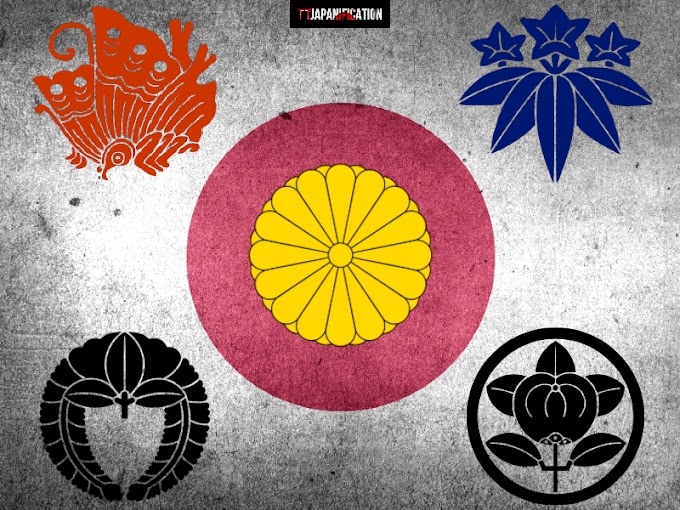In This Article we are going to introduce the most powerful Japanese clans that emerged during the Heian Period after that older clan mentioned in the Nihon Shoki and Kojiki lost their political.
Imperial Clan | 皇室
Said to be descended from the goddess Amaterasu, The Imperial clan also referred to as the Imperial Family or the Yamato dynasty. is the oldest continuous hereditary monarchy in the world. The Imperial House recognizes 126 monarchs beginning with the legendary Emperor Jimmu (traditionally dated to 11 February 660 BC) and continuing up to the current emperor, Naruhito.
The Japanese monarchy was considered to be among the wealthiest in the world until the end of World War II. Before 1911, there was no distinction between the Imperial Crown Estates and the Emperor's personal properties.
Minamoto clan | 源氏
Minamoto was one of the surnames bestowed by the Emperors of Japan upon members of the imperial family who were excluded from the line of succession and demoted into the ranks of the nobility from 1192 to 1333. The Minamoto were one of four great clans that dominated Japanese politics during the Heian period .
The first emperor to grant the surname Minamoto to his children was Emperor Saga, who reportedly had 49 children, resulting in a significant financial burden on the imperial household. In order to alleviate some of the pressure of supporting his unusually many offspring, he made many of his sons and daughters nobles instead of royals. He chose the word Minamoto (meaning "origin") for their new surname in order to signify that the new clan shared the same origins as the royal family.
The emblem of the Minamoto clan - By : 百楽兎
Taira clan | 平氏
The Taira was one of the four most important samurai clans that dominated Japanese politics during the Heian Period of Japanese history . Along with the Minamoto, Taira was one of the honorary surnames given by the emperors of the Heian Period (794 - 1185 CE) to their children and grandchildren who were not considered eligible for the throne.
The clan was founded when the Imperial Court grew too large, and the emperor ordered that the descendants of previous emperors from several generations ago would no longer be princes, but would instead be given commoner surnames and rank.
The emblem of the Minamoto clan - By : Misogi Fujiwara clan | 藤原氏
Fujiwara clan was a powerful family of regents in Japan. They dominated the Japanese politics of Heian period (794–1185) through the monopoly of regent positions. The family's primary strategy for central influence was through the marrying of Fujiwara daughters to emperors. Through this, the Fujiwara would gain influence over the next emperor who would, according to family tradition of that time, be raised in the household of his mother's side and owe loyalty to his grandfather.
The Fujiwara clan's political influence was initiated during the Asuka period. Nakatomi no Kamatari, a member of the lower-nobility Nakatomi family led a coup against the Soga in 645 and initiated a series of sweeping government reforms that would be known as the Taika Reform.
Fujiwara no Fuhito (659–720), the second son and heir of Kamatari, who was prominent at the court of several emperors and empresses during the early Nara period made his daughter Miyako a concubine of Emperor Monmu. Her son, Prince Obito became Emperor Shōmu. Fuhito succeeded in making another of his daughters, Kōmyōshi, the empress consort of Emperor Shōmu. She was the first empress consort of Japan who was not a daughter of the imperial family itself. Fuhito had four sons; and each of them became the progenitor of a cadet branch of the clan.
The emblem of the Fujiwara clan
Tachibana clan | 橘氏
Tachibana clan was one of the four most powerful kuge (court nobility) families in Japan's Nara and early Heian periods. Members of the Tachibana family often held high court posts within the Daijō-kan (Ministry of State), most frequently Sadaijin (Minister of the Left). Like the other major families at court, they also constantly sought to increase and secure their power by marrying into the imperial family. However, as the Fujiwara clan gained power over the course of the 9th and 10th centuries, the Tachibana were eclipsed and eventually became scattered across the country. Though serving in high government posts outside the capital, they were thus denied the degree of power and influence within the court at Kyoto (Heian-kyō) which they once enjoyed.
The emblem of the Tachibana clan
We Hope that You liked this post , and dont forget to like our Page on facebook for more enriching posts about Japanese culture and history.













0 Comments